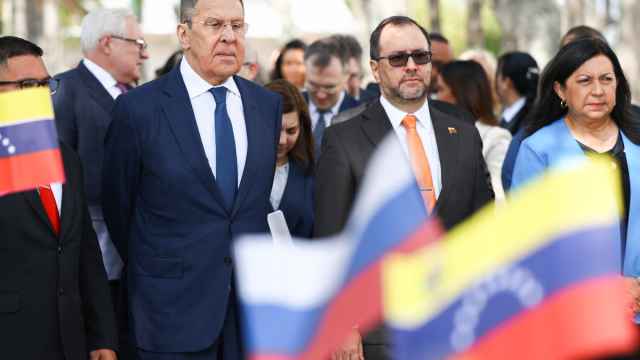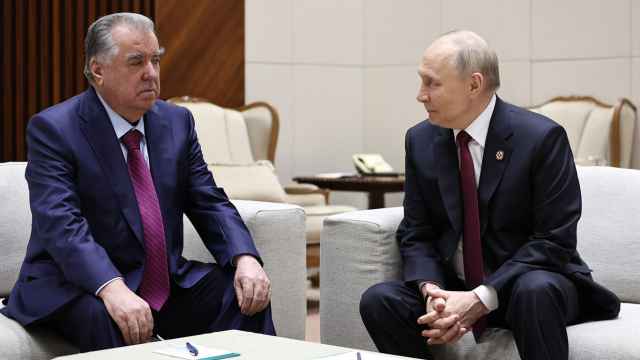The Foreign Ministry has accused U.S. bank JPMorgan of "illegally" blocking a payment from one of its embassies to an insurance agency "under the pretext of anti-Russian sanctions."
In a statement on its website, the ministry suggested the action, which it called "unacceptable, illegal and absurd," would have consequences for the U.S. Embassy and consulate in Moscow.
One of the highest profile confrontations yet over U.S. sanctions, the move may increase tensions between Washington and Moscow and add to U.S. companies' nervousness over doing business in Russia.
"Washington should understand any hostile action against a Russian diplomatic mission not only constitutes a flagrant violation of international law but is rife with consequences that will inevitably effect the work of the embassy and general consulate of the United States in Russia," ministry said in the statement Tuesday.
The bank said later in its own statement that it is subject to government regulations and that it "will continue to seek guidance from the U.S. government on implementing their recent sanctions."
The payment came from Russia's embassy in Kazakhstan to Russian insurance agency Sogaz, which is partly owned by Abros, according to the Sogaz website. Abros is a subsidiary of Bank Rossiya, according to Russian media reports, which is facing U.S. sanctions.
Bank Rossiya was blacklisted by the White House last month as part of a widening effort to punish President Vladimir Putin's inner circle over Moscow's role in the Ukraine crisis.
Industry consultants in Moscow have said financial institutions are unclear about how to apply the new rules in some situations, such as when dealing with subsidiaries of companies which have either been sanctioned or which have shareholders that have been punished.
"There is a lot of confusion … as to what might be the full scope of the sanctions and what we are hearing is while the sanctions are specific, a lot of U.S. companies are adopting a much more risk-averse or cautious approach," said Chris Weafer, partner at Macro Advisory. "There is almost self-sanctioning going on."
Visa and Mastercard briefly cut off services for clients at Russia's SMP bank, whose main shareholders were affected by U.S. sanctions, before resuming them shortly thereafter.
"The general rule is that if a company is controlled … by an individual on the list, they can't do business with that company," one financial consultant said last week, speaking on condition of anonymity.
"But it's quite a slippery slope regarding the whole holding structure," the source said.
The Foreign Ministry's accusation could damage relations that JPMorgan has with the country. The bank generated $55.6 million in investment banking fees in Russia last year, with a 7 percent market share. Worldwide, JPMorgan recorded $6.4 billion in investment banking fees last year, according to the company's annual report.
JPMorgan is the biggest U.S. bank by assets and for its size it does relatively little lending in Russia. At year-end, its loans and trading positions at risk to Russia totaled $5.4 billion compared with the company's total assets of $2.4 trillion.
JPMorgan is one of a number of Western banks operating in Russia. Others which have a presence here include Goldman Sachs, Bank of America, Citigroup and Morgan Stanley.
A Message from The Moscow Times:
Dear readers,
We are facing unprecedented challenges. Russia's Prosecutor General's Office has designated The Moscow Times as an "undesirable" organization, criminalizing our work and putting our staff at risk of prosecution. This follows our earlier unjust labeling as a "foreign agent."
These actions are direct attempts to silence independent journalism in Russia. The authorities claim our work "discredits the decisions of the Russian leadership." We see things differently: we strive to provide accurate, unbiased reporting on Russia.
We, the journalists of The Moscow Times, refuse to be silenced. But to continue our work, we need your help.
Your support, no matter how small, makes a world of difference. If you can, please support us monthly starting from just $2. It's quick to set up, and every contribution makes a significant impact.
By supporting The Moscow Times, you're defending open, independent journalism in the face of repression. Thank you for standing with us.
Remind me later.





